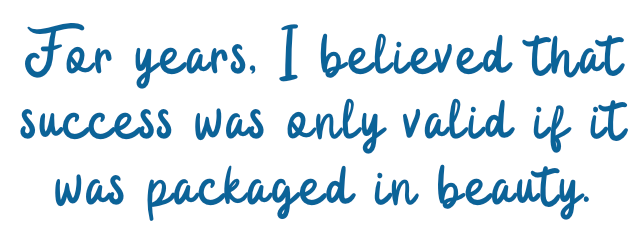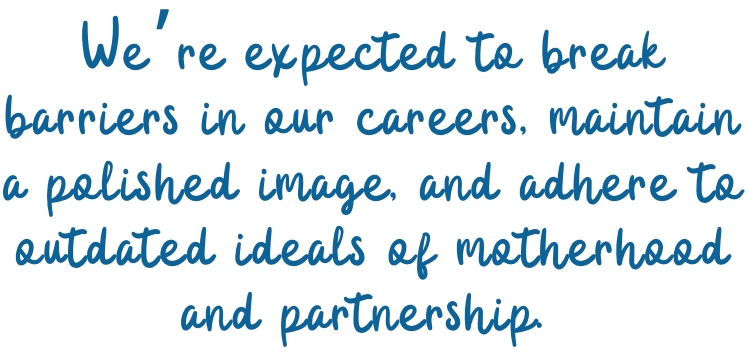I Was Taught to Be Beautiful. My Brother Was Taught to Be Brilliant
Beauty was currency. Brilliance was worth.
When I was 13, my mother let me bring a friend to a beach day. As my friend splashed in the waves, carefree and smiling, my mother turned to me and said, “She’s so thin and beautiful. You could look like that if you ate better and were more active.” I was 115 pounds at the time. Her words pierced me. They wounded my self-worth and lingered long after.

Growing up, I learned that beauty was currency. My mother’s words and actions reinforced it at every turn. From a young age, she made it clear that my appearance mattered — a lot. Comments about my weight, what I ate, and how I presented myself were constant. I remember her disapproval if I chose an outfit she didn’t like; sometimes, I wasn’t even allowed to go out until I changed. Before I could understand self-image, I was already struggling with it, trying to navigate her expectations and the silent judgments they carried.
Meanwhile, my brothers were spared these lessons. Their worth was never tied to their appearance. While I was being groomed to “be a lady,” they were encouraged to thrive at sports, dream of careers, and build futures that weren’t based on their looks. Their strengths were celebrated in ways that had nothing to do with their faces or bodies.
Beauty as a Double-Edged Sword
Until I hit puberty, my family predicted I’d be a model. But acne and weight gain during adolescence brought an end to that narrative. The compliments about my potential were replaced with critiques about my diet and dissatisfaction with my size. That shift was jarring. I was left trying to reconcile the person I used to be praised for — beautiful and full of potential — with the person I was becoming, who seemed to disappoint.
By contrast, my brother was never pigeonholed into one version of success. People spoke of his potential to be a soccer player or a lawyer with pride. His identity wasn’t tethered to an ideal he could age out of. I noticed the absence of pressure in his life where there was abundance in mine.
A Systemic Issue
It wasn’t just my family that reinforced these ideals. Society reinforced the message that to be a successful woman, you had to be beautiful and accomplished. In media, the women we admired seemed to effortlessly embody both. Beautiful women who weren’t traditionally successful were reduced to their looks. Successful women who weren’t conventionally beautiful were portrayed as “nerdy” or somehow lesser. Growing up, I believed I had to excel at school while maintaining a polished appearance because failing at either seemed unacceptable.
In school, even from as early as five years old, modeling contests were common. The competition wasn’t just academic. It was also aesthetic. It was a constant measure to compare myself to others. By high school, the weight of balancing “beauty” with “brilliance” began to crush me. My grades slipped, and depression took hold. At 15, I self-harmed for the first time. My mother dismissed it as attention-seeking. Perhaps it was, but not in the way she thought. I was begging for her to see the parts of me she had ignored for so long: the pain, the insecurity, and the longing to be valued beyond my looks.
Unpacking the Damage
These early lessons shaped me well into adulthood. For years, I believed that success was only valid if it was packaged in beauty. I pushed myself relentlessly, juggling society’s dual expectations. It wasn’t until I reached my mid-twenties that I began unlearning these ideas. Therapy, self-reflection, and lived experience helped me understand that beauty and brilliance are not mutually exclusive, nor do they define my worth.
Today, I see myself as both. I’m not beautiful or brilliant by someone else’s narrow standards but by my own. And that’s enough. The people who matter most to me see and celebrate the fullness of who I am — not just how I look or what I’ve achieved.
The Bigger Picture
Society still pressures women to perform impossible balancing acts. We’re expected to break barriers in our careers, maintain a polished image, and adhere to outdated ideals of motherhood and partnership. These expectations weaken our confidence. They steal years we could have spent living authentically. While things are changing, the scars of these pressures linger.
For men, the story is different but no less damaging. They’re often burdened with expectations to be providers, suppress emotions, and avoid roles traditionally coded as feminine. One of my younger brothers was an emotional child who cried freely. Watching him slowly suppress that part of himself as he grew up broke my heart. Even now, at 25, glimpses of that emotional openness remain, but I see the toll of societal conditioning in his guarded demeanor.
Reclaiming My Confidence
For me, breaking free meant stepping out of my comfort zone and questioning everything I’d been taught. It meant opening my mind, developing critical thinking, and learning to embrace what works for me rather than what’s expected of me. Confidence came later, slowly but surely, as I learned to love myself — not for meeting someone else’s standards but for being fully, unapologetically me.
Moving Forward
Expectations for women and men are changing. But, the journey to dismantle internalized beliefs is deeply personal. It’s about unlearning, healing, and reclaiming agency over how we define beauty, brilliance, and success. For anyone struggling with these pressures, know that you are enough — just as you are.
Have you ever felt trapped by society’s expectations of beauty, brilliance, or success? Share your story in the comments or reflect on what redefining these ideals means to you.
💡 Check out my Etsy shop, Mental Nesting! Thoughtfully designed mental health-inspired mugs, tees, and more to inspire self-care and connection.
🎉 For a limited time, enjoy 25% off all items! 👉 Visit here






